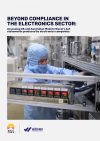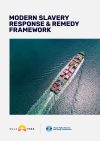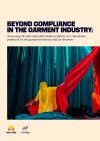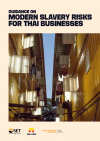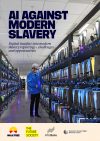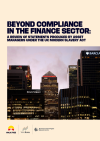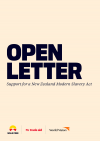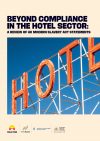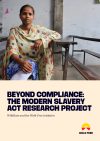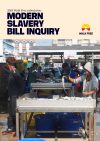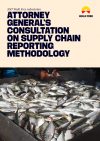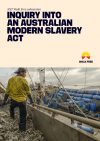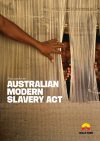Strengthening supply chain transparency
Advocating for and strengthening modern slavery reporting and supply chain transparency.
What are Modern Slavery Acts?
Following California’s 2010 Transparency in Supply Chains Act, the United Kingdom put forward the first national legal framework for combatting modern slavery, the Modern Slavery Act 2015. Under Section 54, it includes a provision on transparency in supply chains that requires companies supplying goods or services in the UK with an annual turnover of £36 million or more to publish an annual modern slavery statement indicating the steps they are taking to identify and address modern slavery risks.
In 2018, Australia became the second Commonwealth country in the world to pass a Modern Slavery Act. It establishes a requirement for companies with an annual consolidated revenue over A$100 million to release annual reports on their actions to address modern slavery in their operations and supply chains.
How we do it
We advocate for Modern Slavery Acts around the world by engaging with governments and partnering with business and civil society champions.
We also work with WikiRate and the Business & Human Rights Resource Centre to understand compliance under the UK’s Modern Slavery Act. With an estimated 12,000-17,000 companies having to publish statements per annum, this work entails reviewing modern slavery statements and creating tools for greater transparency for consumers, businesses, policymakers and civil society organisations.
We take a sector-specific approach to conduct a more tailored analysis of the statements and their quality, and to develop recommendations of what constitutes a strong statement and good business practice. To date, we have reviewed the compliance of the hotel sector with the UK’s Modern Slavery Act, which demonstrated critical gaps in reporting, followed by the financial sector.
First, we determine which companies are in scope of the legislation by reviewing publicly available lists and consulting with industry experts. Second, we assess the statements against metrics derived from the Home Office statutory guidance on the Wikirate platform using a citizen-science approach. Third, we develop sector- specific metrics and assess the statements against these. Students studying business and human rights at world-leading universities participate in this assessment.
We are also exploring the feasibility of Artificial Intelligence and machine learning to speed up our processes for assessing the statements in collaboration with The Future Society – the AI Against Modern Slavery project.
Our targets
- Engage with governments to implement supply chain transparency legislation.
- Assess Modern Slavery Act statements produced by asset managers.
- Review statements produced by the garment industry.
- Develop an algorithm to assess the statements using AI.
Recommendations
For governments
- Strengthen transparency reporting requirements through modern slavery legislation.
- Publish an up-to-date, comprehensive list of all companies and their subsidiaries subject to modern slavery reporting.
- Keep a single registry where companies must submit their statements.
- Legislate that companies should publish statements in machine readable formats to improve comparability and support transparency.
For businesses
- Conduct and disclose due diligence in their supply chains with special attention to the risks within their own sector.
- Publish their modern slavery statement on their homepage and in machine-readable formats.
- Assist governments with keeping an up-to-date, comprehensive list of all companies and their subsidiaries subject to reporting.
Contribute to the project
Advance our work by conducting research on the Modern Slavery Act project on WikiRate.
